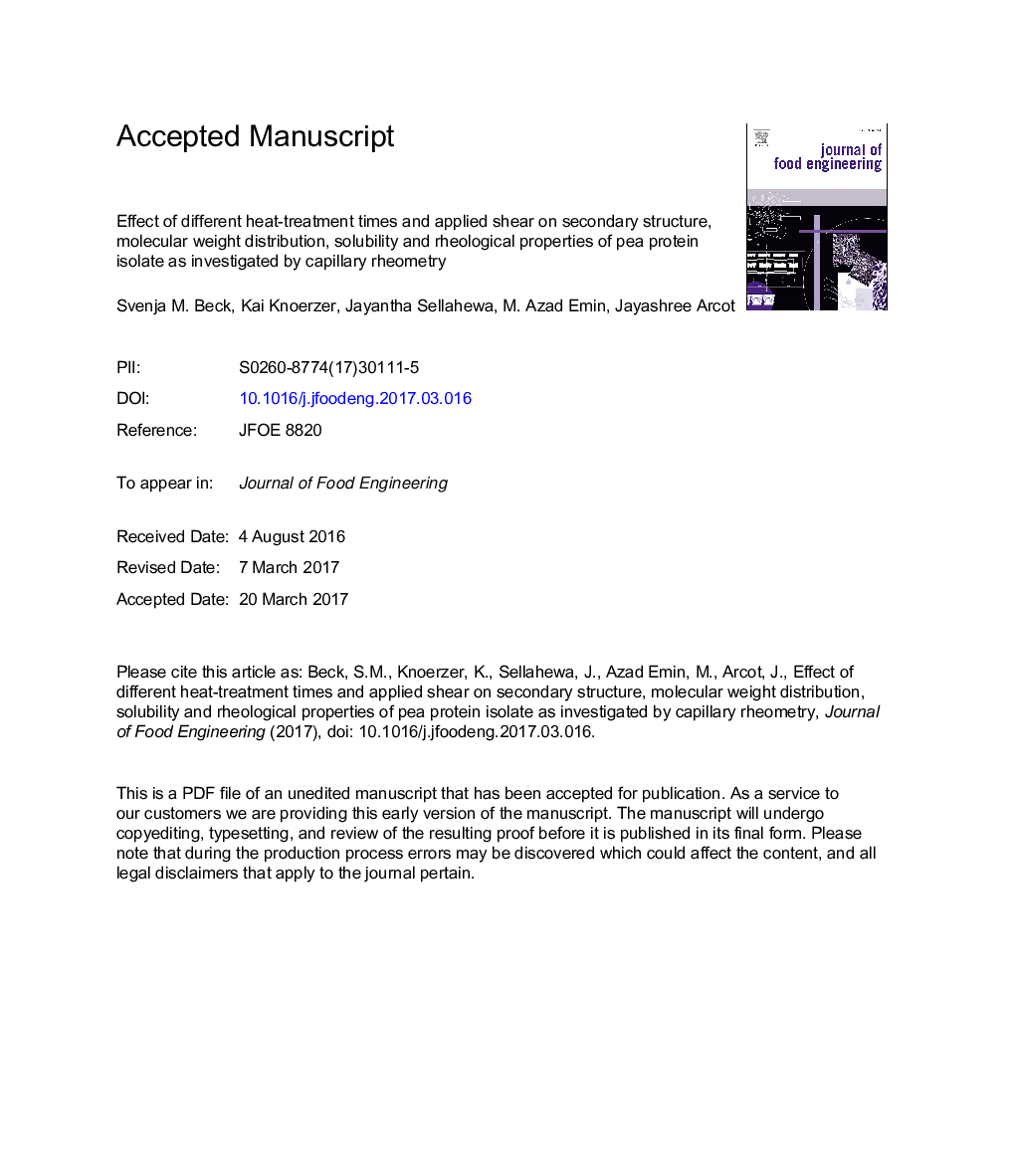| Article ID | Journal | Published Year | Pages | File Type |
|---|---|---|---|---|
| 4908991 | Journal of Food Engineering | 2017 | 40 Pages |
Abstract
A capillary rheometer study was carried out to expose a pea protein isolate to defined shear rates in a range of 250-3000 sâ1 and heat-treatment times of 0.5, 5 and 20 min at 130 °C, and to determine the effect on secondary structure, molecular weight distribution, water solubility and viscosity. Heat-treatment caused the formation of shear sensitive protein aggregates, likely consisting of β-turn structures or anti-parallel β-sheets as determined via Fourier Transform Infrared Spectroscopy (FTIR). Protein aggregation caused a reduction in water solubility. Molecular weight distribution of the protein was altered, with longer heat-treatment time affecting more proteins, as revealed by SDS-PAGE. The protein isolate featured shear thinning behaviour, and no significant difference in viscosity was found for the three different heat-treatment times. This knowledge helps to understand heat and shear induced structural changes on a pea protein isolate.
Keywords
Related Topics
Physical Sciences and Engineering
Chemical Engineering
Chemical Engineering (General)
Authors
Svenja M. Beck, Kai Knoerzer, Jayantha Sellahewa, M. Azad Emin, Jayashree Arcot,
